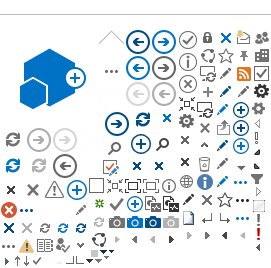Nuclear Biofuels Workshop
About
You are invited to attend a workshop that addresses the question: Can a nuclear biofuels system enable liquid biofuels as the economic low-carbon replacement for all liquid fossil fuels and chemical industry hydrocarbon feedstocks where nuclear energy provides the low-carbon heat and hydrogen at the biorefinery?
Lignocellulosic biomass has long been used as an energy source but it is also a source of renewable carbon that can be converted into hydrocarbon fuels. If external heat and hydrogen from nuclear plants are provided to the biorefinery, rather than using biomass as both the heat and hydrogen source, the energy content of the biomass-derived hydrocarbon fuels can be more than double the energy content of the biomass itself.
External energy inputs from a nuclear plant enable:
a much smaller land base to supply the necessary biomass for a desired amount of biofuels, and
using biological carbon sources that are poor fuels to provide the necessary carbon.
External heat and hydrogen:
becomes the enabling mechanism for biomass to replace crude oil for a fast transition off fossil fuels, and
may be 15% of total U.S. energy consumption—the second biggest nuclear market after electricity.
Workshop ScheduleAll events will be held virtually via GoToWebinar.
System Design | Wednesday, August 4 | 10:00 a.m. - 1:30 p.m. EDT
- Welcome | Charles Forsberg (MIT) / Bruce Dale (MSU)
- Roadmap | Charles Forsberg (MIT)
- Availability of Biomass as a Carbon Source | Bruce Dale (MSU)
- Carbon Dioxide Sequestration & Negative Carbon Emissions | Howard Herzog (MIT)
- Feedstocks and Utilities Supply and Quality for the Biorefinery | Richard Boardman (INL)
- Conversion of Biomass to Digestate, Methane and Carbon Dioxide | Hassan Loutfi (Roeslein Alternative Energy)
- Roundtable Discussion & Audience Participation
Biomass Supply Chain to the Refinery | Wednesday, August 11 | 10:00 a.m. - 1:30 p.m. EDT
- Welcome | Lynn Wendt (INL)
- Refinery Economics and Operations | Pingping Sun (Argonne National Laboratory)
- Depot Processing Options: Managing Variability through Fractionation, Merchandising, Formulation | Richard Hess (INL)
- Wet versus Dry Biomass Intermediate Products | Lynn Wendt (INL)
- Carbon-Negative Electrobiofuels from Regional Pyrolysis Depots | Christopher Saffron (MSU)
- Transportation from Depot to Biorefinery | Dani Jones (NCSU)
- Roundtable Discussion & Audience Participation
Nuclear Biorefinery Options | Wednesday, August 18 | 10:00 a.m. - 1:30 p.m. EDT
- Welcome | Charles Forsberg (MIT)
- Nuclear Hydrogen Production | Eric Ingersoll (LucidCatalyst)
- Hydrogen Production with Carbon Capture and Storage | Addison Cruz (Honeywell UOP)
- Ethanol Upgrading to Hydrocarbon Fuel Blendstocks | John Hannon (Vertimass)
- Direct Hydrodeoxygenation of Lignocellulosic Biomass to Hydrocarbons | Ana Rita C. Morais (University of Kansas)
- Fisher-Tropsch Technology for Synthetic Products | Svetlana van Bavel (Shell Global Solutions International B.V.)
- Matching Nuclear Reactors to Biorefinery Requirements | Speaker TBA
- Roundtable Discussion & Audience Participation
A complete agenda for all workshops, including more detailed topic descriptions, is available here.
 |


